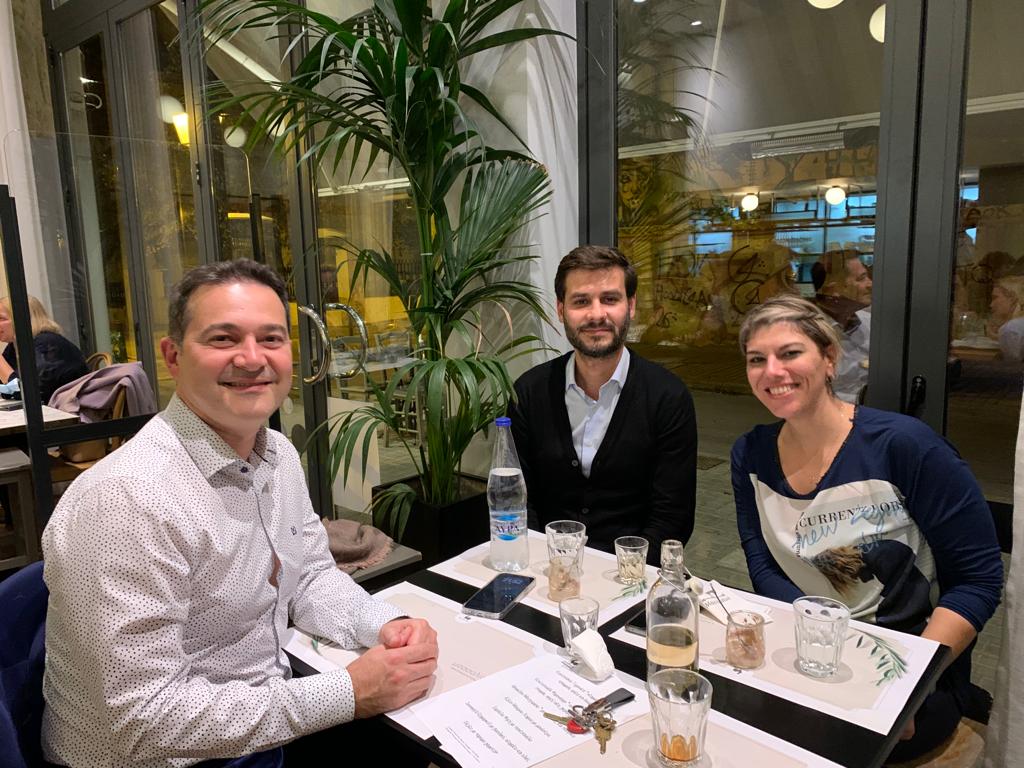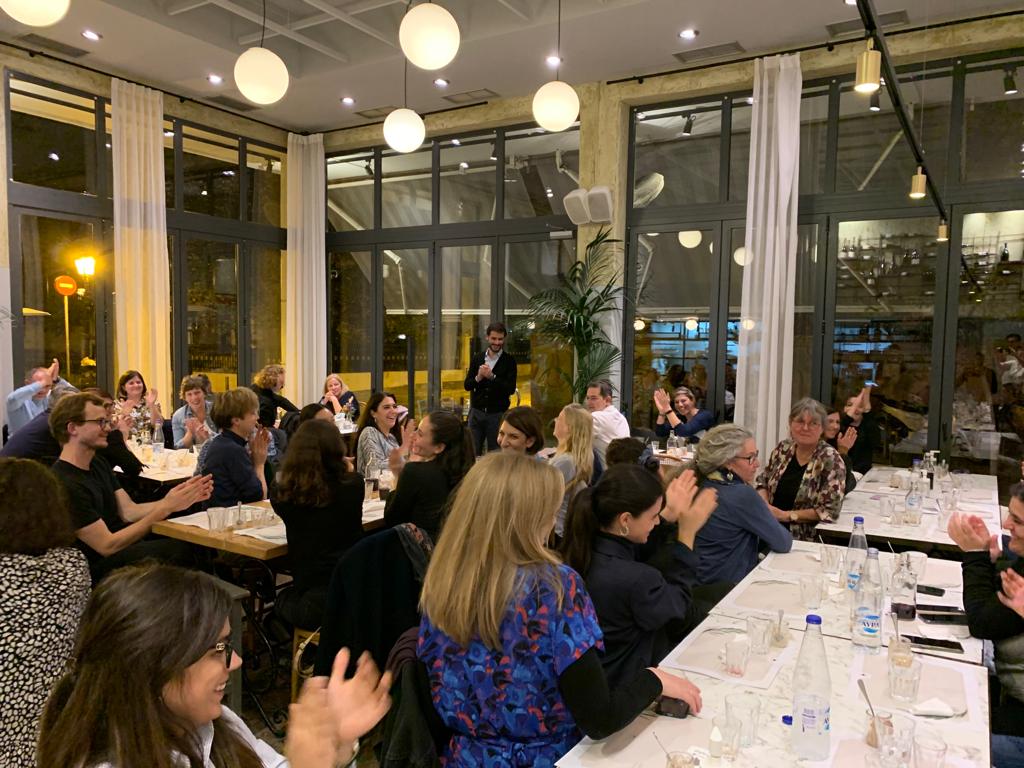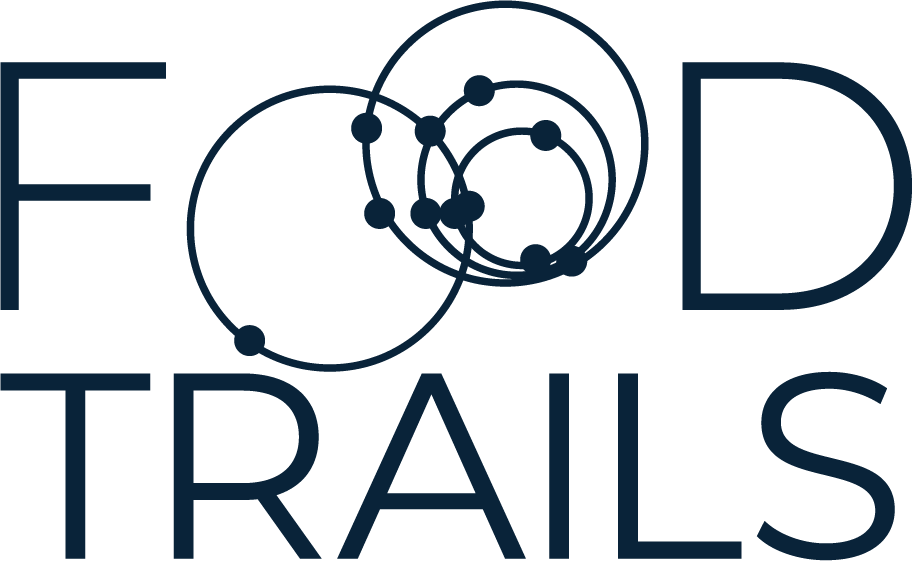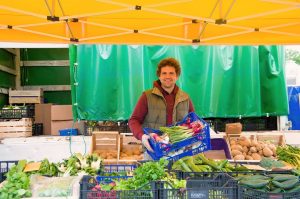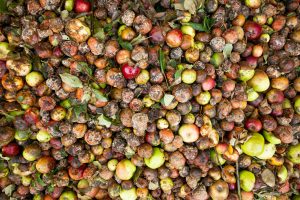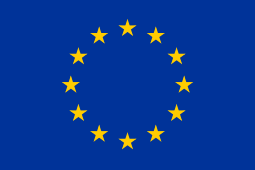Introduction
From 9 to 11 November 2022, the Food Trails family met in the beautiful city of Thessaloniki for the Food Trails Annual Partner Meeting – Year 2, to review the project’s progress and discuss and reflect on the next steps.
An incredible group of 56 people, representing the entire consortium, meet to exchange and reflect on project implementation and create synergies.
During three days partners benefited from workshops with cities, researchers and think tank members to support the Living Labs’ development, guide future work and accelerate and foster the transition towards more sustainable, fair and healthy food systems.

End of year 2: the state of the art of the Food Trails project
Partner cities updates
The end of year 2 represented an important milestone for the Food Trails project because during this period the 11 Food Trails partner cities started the implementation of the Food 2030 pilot actions, which meant that, through the Urban FOOD2030 Living Labs, they actively engaged a wide range of actors and stakeholders to address the transformation of the local food system.
At the APM in Thessaloniki partners presented advancements and concrete actions that they are building to advance urban food policies through pilot actions.
From creating a Food Council in Thessaloniki, to implementing stakeholders consultation, communication tools, education activities and events allowing citizens’ direct engagement and awareness raising on food as in the Municipality of Bergamo, Groningen, Funchal, Grenoble-Alpes and Tirana.
From launching a food strategy in Birmingham, to establishing innovative and ambitious procurement criteria for collective catering in the municipality of Milan or Copenhagen.
From enhancing local food governance in Bordeaux, to developing research pieces in Warsaw to inform targeted food aid actions. Learn more about the 11 partner cities Living Labs and pilot actions.
By December 2022 the efforts to implement Food 2030 pilot actions had been structured in an interim report. Its drafting was a major collective effort involving the entire Food Trails consortium, composed by cities, Crosscutting Managers, institutional and research partners.
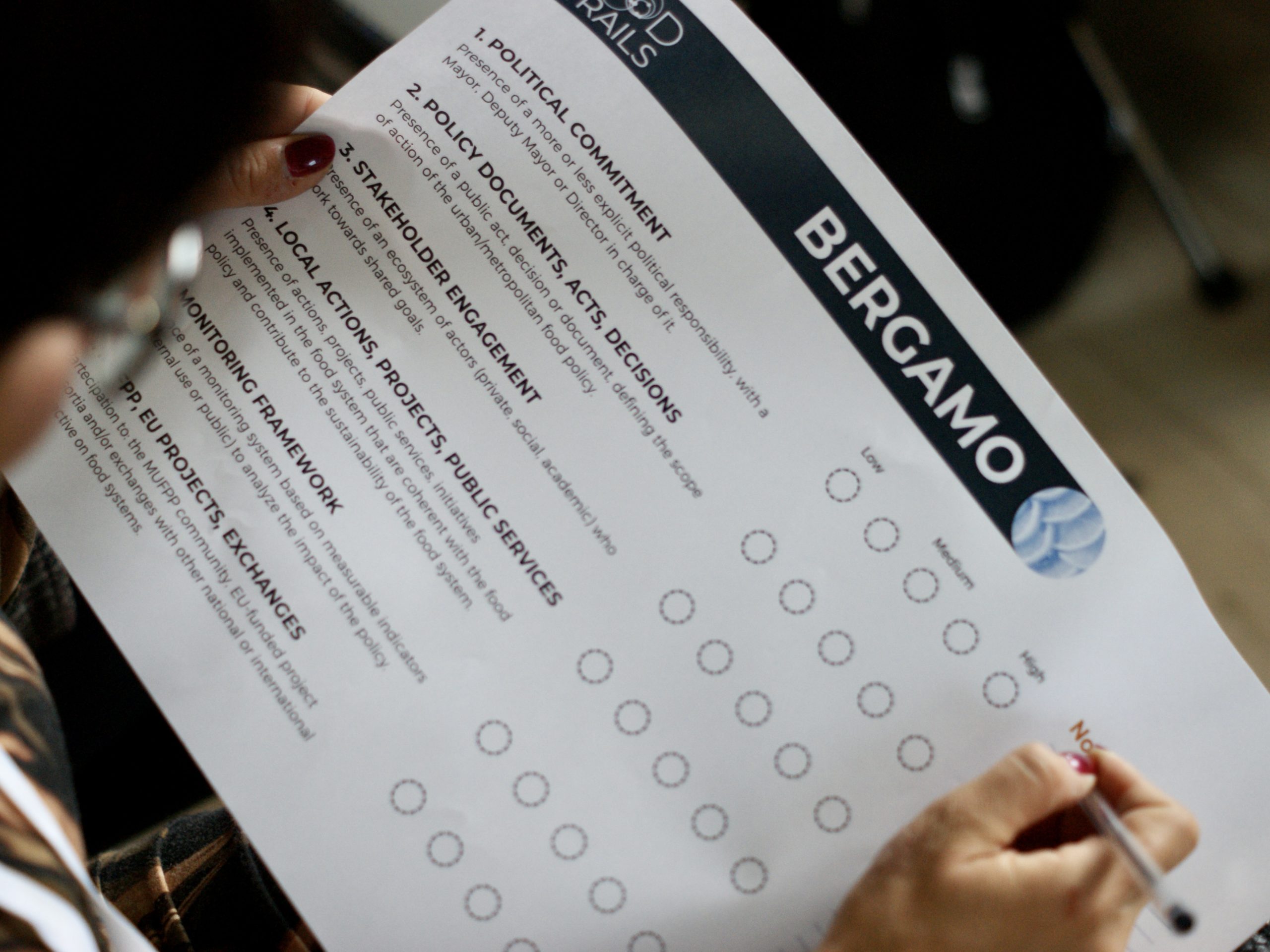
Scientific partners updates
During this period, the main task of Food Trails scientific partner was to support cities in defining a monitoring framework to evaluate:
Impact: measurement of the changes enabled by and connected to the execution of the project
Process: measurement the progress of the Living Lab initiatives
Outcome: measurement of the results of the Living Lab activities.
More than 200 indicators had been identified by partner cities. The challenges of the coming period will be understanding how to valorise the data collected by cities and generate a usable dataset; the implementation of the data collection plan, and finally, the data analysis and dissemination.
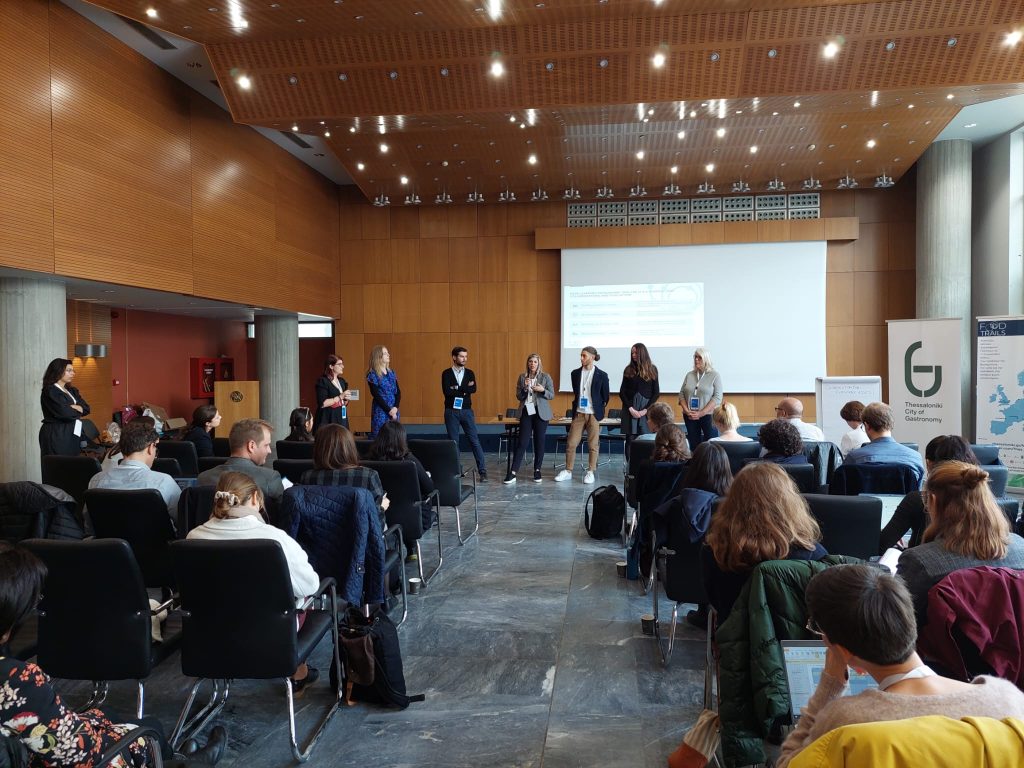
Economic sustainability of urban food policies
Three main guiding principles for moving towards an economically sustainable urban food policy emerged from the first 2 years of project:
- food businesses generate jobs and income, and can also generate social or environmental impact;
- innovators can support the goals of the food policy;
- the food policy should include a perspective on partnerships for investment in food innovation.
The work of the Food Trails Investors Lab, which brings together investors, experts and Food Trails cities to discuss impact investing, focused on the economic sustainability of food policies and led to a roadmap for impact investing in sustainable urban food systems. Each component of the roadmap has been addressed in a session of the lab:
- Impact – commonalities and differences in defining impact between investors and the wider community in the case;
- Ambition – develop impact ambitions;
- Data – establish data and information necessities;
- Policy – policies and regulations together with policy makers;
- Products – develop products, tools and services (investment and process readiness);
- Scaling – determine potential and action for scaling;
- Capacity – financial literacy together with wider community (webinar);
- Community – bringing transformation to/through the wider community (webinar).
Six sessions of the Investors Lab have already taken place. The schedule and repository of its sessions can be found here.
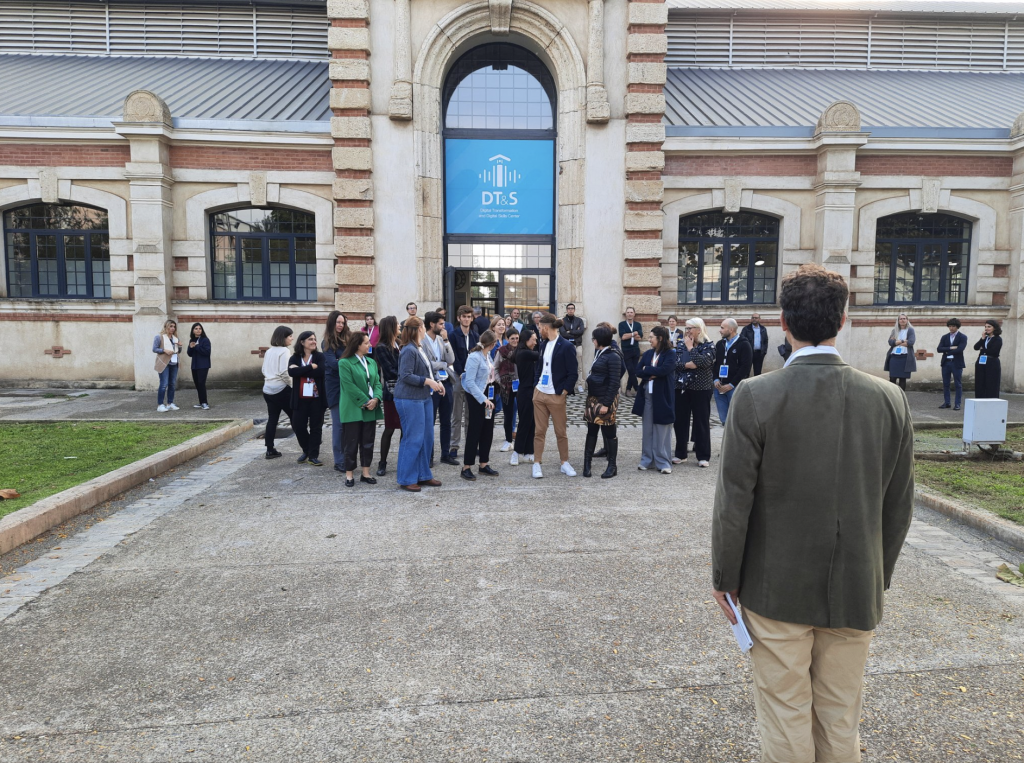
Innovation
To support the engagement of innovators in food policies development, Food Trails launched a call for solutions to solicit ideas from the private sector, and in particular from startups and micro and medium-sized enterprises.
The needs of the cities for solutions have been identified through surveys and workshops, resulting in a “Open Innovation Tree” per city in which public-private partnerships needs are represented.
Each partner city will be asked to collaborate and provide support to the selected entrepreneur to develop innovative solutions for their needs. A matchmaking event is planned in May 2023 in Milan.
Discovering Thessaloniki
During the Annual Partner Meeting the Food Trails consortium took the chance to visit and learn more about the Thessaloniki’s Living Lab and meet key actors of local food governance.
A site visit to the Thessaloniki urban vineyard, which produces the Gorgona (“Mermaid”) wine and also includes a community garden, was organised. On this occasion the municipality of Thessaloniki had the chance to explain how places like this represent a living collaborative laboratory; and how urban gardening is a vehicle for citizens to reclaim and own public space and improve food access and democracy.
The programme also included a site visit to the Gerovasileiou Winery, the most prominent winemaker in Greece, which transforms grapes from the urban vineyard into wine; and a stop at the Chilli Factory Organic Farm, where founders shared their perspectives as members of the Organic Producers Association and participants in the new Food Council.
Conclusions
The Food Trails project moves forward! The work of the Food Trails project continues with strengthened collaboration between partners and even more synergies to enhance the impact of this research and innovation project and support the long-lasting positive transformation of the EU food system.
Once again we want to thank all partners for the fruitful meeting and especially to the Thessaloniki team for their warm welcome and great energy.
